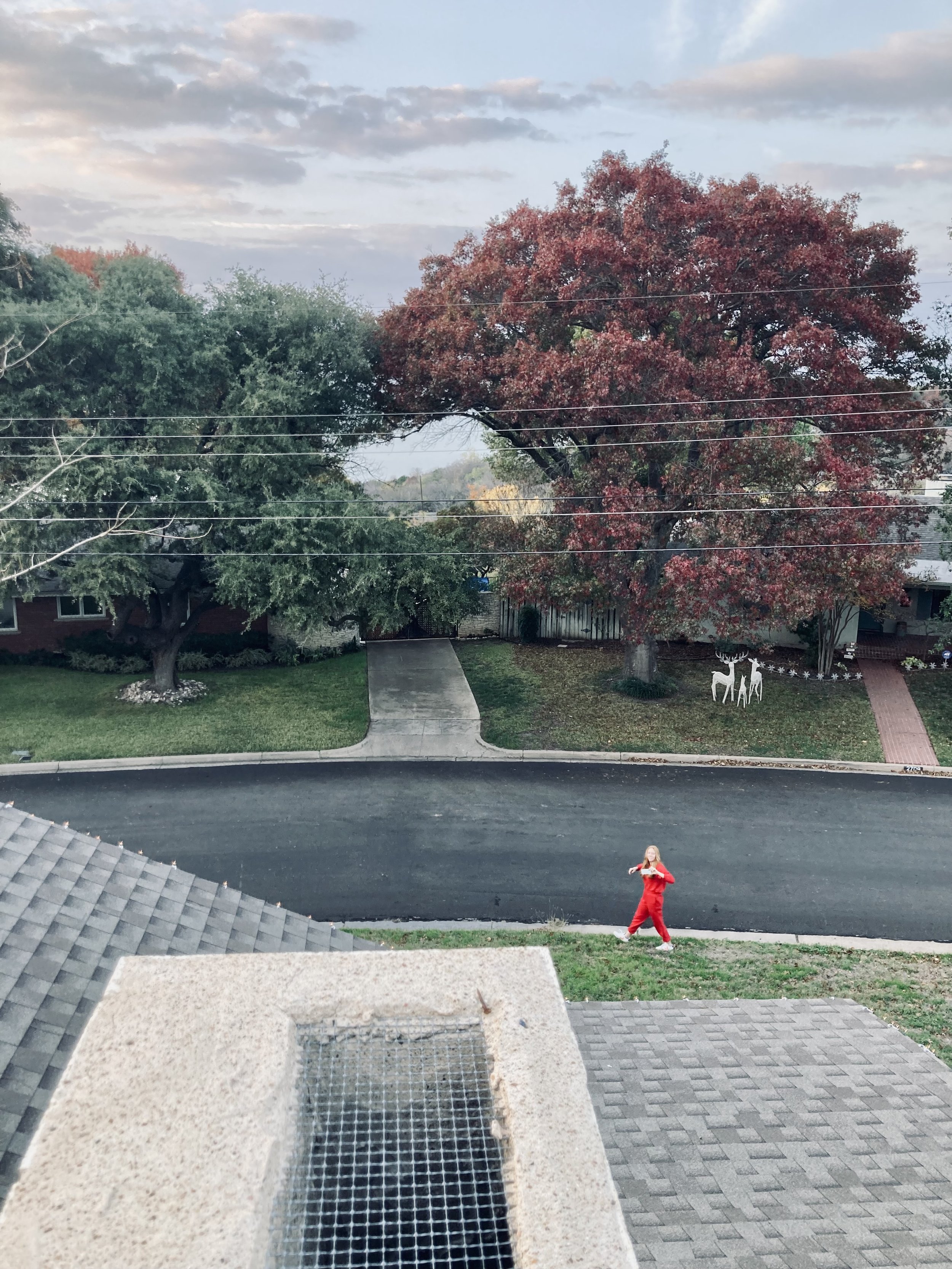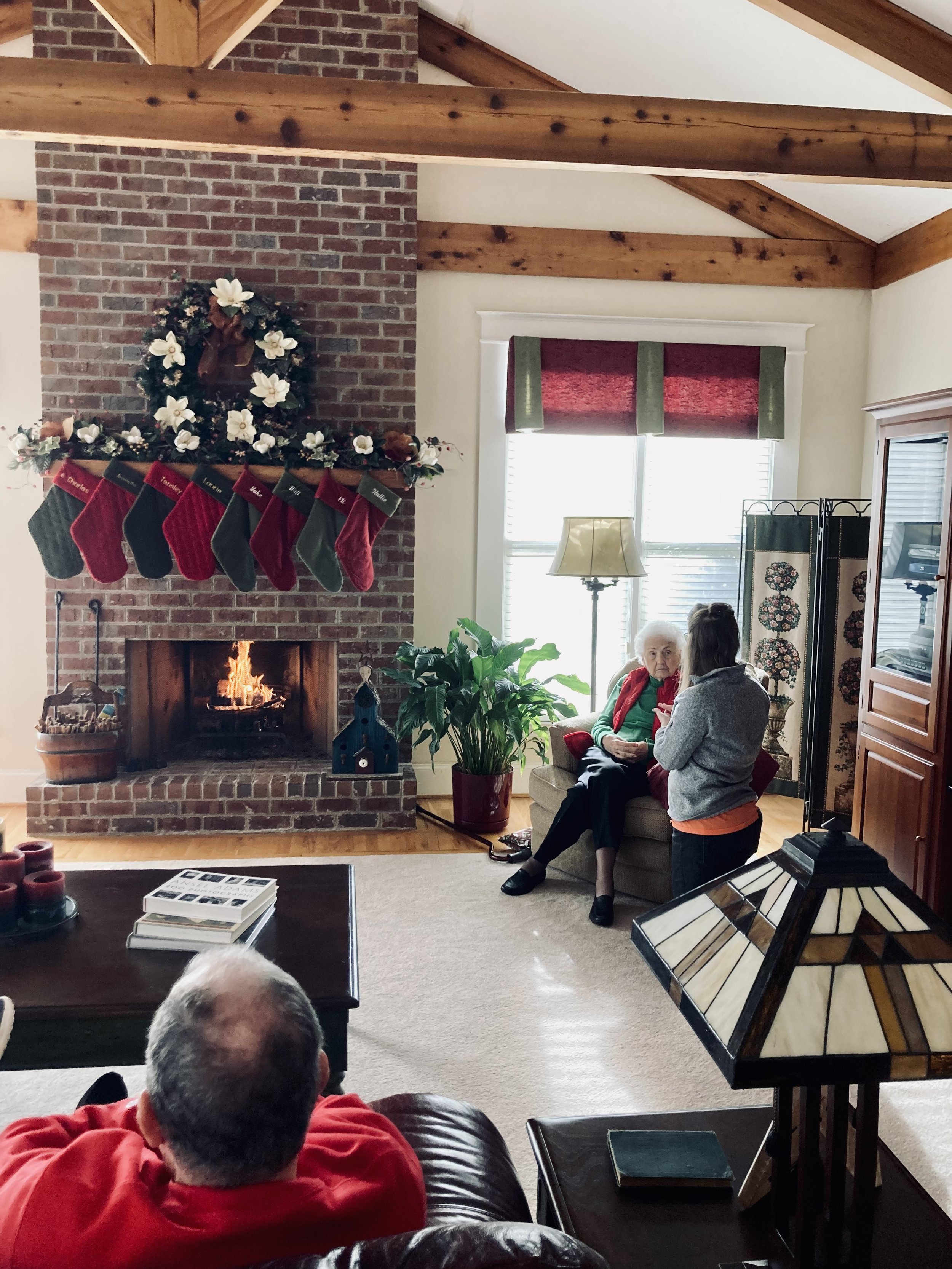Sacred
Sacred. It’s a word that keeps coming to mind this holiday season. By sacred, I mean moments where the eternal becomes the here and now, the festive falls away and becomes holy, where the world slows down long enough for me to see clearly. Here are a few:
Speaking blessing and encouragement over loved ones. Writing my little haikus to coworkers and family or sitting around the table with friends in our Christmas pjs, looking back on how we’ve grown—as I wrote, as we spoke, I thought, these words are light. Eternal, even. It’s an act of fortifying the bonds that make us who we are, sweetening souls and healing bones (Prov. 16:24). The words we say to each other, especially in these days of reverence and reflection, matter.
“Embracing the minor keys of Advent,” an idea Lore Ferguson Wilbert beautifully unpacked last month. (Do me a favor and subscribe so you can read the full post and the rest of her work, which will bless you far beyond the holiday season.) I’m grateful for the way she articulated something my heart couldn’t even name, but now I can’t unsee it. She references the “major keys” of December—parties and jolly tunes and commercial traditions. And while I do love wrapping presents to those tunes, gathering with friends, and sending out hilarious Christmas cards (if you know you know), this year I finally understand the value of the “minor keys” Lore talks about. More than years past, I welcome a run in the bitter cold. I feel revived by moments of stillness. On December 21, one of my good friends posted about the Winter Solstice—the rhythms it produces in nature and in us (if we let it) and how darkness is a good teacher. I think she has a point. This year, I’m seeing with greater clarity that to bask in the bright power of Jesus being the light of the world, we first have to grasp the ever-growing darkness.
Singing “O Come, O Come Emmanuel” at my parent’s church. The song has always felt haunting to me, its call to be joyful coated in a somber melody. But that day, it was the song I needed. The week leading up to this song held one tragic death after another, the brokenness of several close to me, and my own emotional exhaustion. As we sang, it all came to the surface and my body responded: chills all over, hands over my heart, tears in my eyes.
And as our voices dimmed to not much more than a whisper, I felt the sacredness of it all. Even quiet rejoicing is still a great rebellion. Even as the days grow darker and chaos and sorrow abound, a candle still casts its light. Even in a weary world, the music goes on—a hopeful tune that our hearts still know how to play.
To be sure, some sacred moments have not been so deep. Some have looked like (left to right) sitting on my roommate’s chimney (highly recommend), cuddling with friends, or laughing with my 97-year-old grandmother after not seeing her for a year.
A few scenes from The Lord of the Rings: Return of the King have been playing on repeat in my mind. Frodo’s weary, bloodshot eyes, scanning the ever-darkening horizon. Gandalf, dirty and exhausted, sitting in an empty street in Gondor. As the war rages just around the corner, Pippin’s accepts defeat. “I didn’t think it would end this way.” Tolkien’s world doesn’t sound too different from our own.
But underscored by Howard Shore’s heavenly motif, Gandalf, with the little strength he has left, whispers hope:
“End? No, the journey doesn’t end here. Death is just another path... one that we all must take. The grey rain-curtain of this world rolls back, and all turns to silver glass. And then you see it.”
“What, Gandalf?” Pippin asks. “See what?”
“White shores…and beyond,” Gandalf says. “A far green country under a swift sunrise.”
The other day I read God’s promise from Isaiah 65:17-25, made possible by the redemptive work of His Son. I don’t know about you, but it sounds like that far green country:
“For behold, I create new heavens and a new earth; And the former things will not be remembered or come to mind.
But be glad and rejoice forever in what I create;
For behold, I create Jerusalem for rejoicing
And her people for gladness.
I will also rejoice in Jerusalem and be glad in My people;
And there will no longer be heard in her
The voice of weeping and the sound of crying.
No longer will there be in it an infant who lives only a few days,
Or an old person who does not live out his days;
For the youth will die at the age of a hundred,
And the one who does not reach the age of a hundred
Will be thought accursed.
They will build houses and inhabit them;
They will also plant vineyards and eat their fruit.
They will not build and another inhabit,
They will not plant and another eat;
For as the lifetime of a tree, so will be the days of My people,
And My chosen ones will fully enjoy the work of their hands.
They will not labor in vain,
Or give birth to children for disaster;
For they are the descendants of those blessed by the LORD,
And their descendants with them.
It will also come to pass that before they call, I will answer; while they are still speaking, I will listen.
The wolf and the lamb will graze together, and the lion will eat straw like the ox; and dust will be the serpent’s food. They will do no evil or harm on all My holy mountain,” says the LORD.
We don’t retreat to the cold or live in darkness in vain. The Light of the World is with us. We are hushed but still rejoicing. Somber but still alert with wonder. And so we wait with hope for the second Advent, our inheritance: the return of the King.
O Come O Come, Emmanuel.



